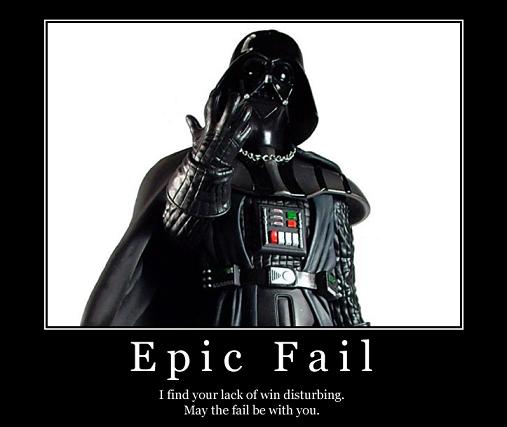
Hackers just seem to ruin everything sometimes. Sure, hacking and homebrew have some legitimate purposes and have even pushed companies to make popular options once only available through grey market channels legitimate through official channels. All sorts of opinions exist on the subject - the consumer right to handle their property as they please versus what corporations feel is legitimate use of the product for their reasons. Sometimes it makes sense and sometimes it doesn't. It clearly does not make sense when the hacking is done with the intent to give one video game player a distinct, unfair advantage over another.
Hacking video games at home to re-enable "lost" features (or hot coffee) can be an exiting adventure into the development process and the experimental worlds of what once was. Doing this in the days of offline gaming was a perfectly legitimate venture for most, as it was kept solely to the console it was on and affected no one else. But beginning with the earliest editions of Pokémon, hacking started to become a problem to those who wanted to play legitimately. It boiled down to making the playing field uneven and took the fun out of the game. Carrying the analogy further, video game hacking is like taking steroids in sports. It ruins the game for everyone who wants to play on a fair, competitive basis. (We should take a moment to note mods for titles such as Team Fortress II are not considered hacks for the purposes of this piece as their intent is to expand upon the title, versus simply grant an advantage to one player over another.)
The need for fairness becomes of even greater importance when the reward for playing fair is so lucrative and the process of actually winning is so conspicuous that the game restricts the frequency any one player can hold the spotlight or win a large reward. The example we point to prominently is the Xbox Live implementation of 1 vs 100. Players play an "extended" mode through the week to build up their stats for a live broadcast of the "show", complete with host and high levels of audience interaction. The stats players build up can influence their odds of competing during the "Live" show in the spotlight as "The One", who can win up to US $150.00 in Microsoft Points, or a member of "The Mob", who can win up to $25 in games and/or Microsoft Points. (There are other positions to play in during Live, however we suggest you pick the game up for more information). With real-world prizes on the line and a desire to give everyone a fair shot at the winnings, Microsoft has been taking painstaking steps to keep the game fair and the hackers out.
Apparently this security was broken on the UK version of 1 vs 100 if current breaking reports are to be believed. (Note the show follows an identical format for the US and UK editions.) In short, a group of Xbox Live gamers claim to have hacked the game and been "The One" up to four times and in the mob consistently. The legitimacy of these claims lies in question, however there are a few points to consider that may suggest the validity of these claims are more than just someone blowing smoke over Live.
First, we have the system itself. Microsoft claims being "The One" more than once per season of 1 vs 100 is not allowed. This is something that is likely enforced by some strict security measures, given the responsibility to paying advertisers to keep gamers interested by way of fair odds. (Yes, even on a Microsoft product good security is known to happen.) Historically, Microsoft has been very strict in maintaining the fairness of Xbox Live in the interest of creating an enjoyable (and lucrative) experience by banning consoles known to contain mod chips or cheating devices, or consoles that may not have cheating devices but that have been used with a cheating device in the past. Beyond the hardware, Microsoft has taken a very simple, but very powerful action by simply marking gamertags known to be associated with cheating. Users handle the rest of this by kicking known cheaters from game sessions - even pausing record breaking matches to remove them. The combination of these steps has resulted in Xbox Live accumulating a reputation for being a fair, enjoyable place to play in, worth the cost of admission.
Continuing on then, let's compare the claims of the hackers to what has been stated by Microsoft. First we come to the claim the hackers have hacked the slot of "The One". A key problem here is the hackers have claimed to have been the one with different gamertags, all starting with the word "Defensive". Speaking on a technical level, this claim is not true at face value - no one has been "The One" multiple times. Different, but very similar gamertags have. Thus, it is incredibly unlikely anyone hacked into the Xbox Live servers to actually influence the game on a technical level in terms of game code, server processes, etc.
The next claim the hackers have made is having gotten into the mob several times. As noted before, this is allowed and expected to happen, despite the low odds of it occuring. The "Defensive" gamertags getting into the mob several times would therefore be quite normal.
So are the hackers blowing smoke? Probably not. Speaking as a player of 1 vs 100 who has seen over 4,000,000 knockouts and answered tens of thousands of questions, I have noticed some definite patterns in the game with regards to both players and random selection. For instance, you definitely get a feel for how "dumb" or smart the crowd/mob can be at times and where those limits lie. Yes, four people don't know what the McDonald's logo is - shocking at first, but something you see from time to time as a pattern. "The One" generally lasts nine to eleven questions on their turn in the spotlight. Certain avatars tend to show up in the mob after being "The One", and vice versa. These avatars are generally of the folk you tend to see in the highest lifetime stats and highest accuracy/speed results of the game. I'm not doing anything special to see how the game works, it's just something you notice if you play regularly and are paying a reasonable amount of attention to the entire game versus just the questions.
Our theory? It is entirely possible these "hackers" have not actually "hacked" anything but have just figured out how the game works and learned to exploit it. It is also entirely possible quite a few other folk have figured out how the game works and exploited that knowledge from time to time. Does this mean Microsoft is to blame? Not in strict terms, but they absolutely ought to take steps to keep selection algorithms as fresh and random as possible. It is an easy fix and keeps the game going fairly.
So perhaps it isn't strictly video game hackers who suck, but instead the schmucks who just can't play fair. The guys who attempt to get the upper hand by doing what it takes, by hook or by crook. Well, I would like to tell you something. You suck! Stop ruining my games! If your entire existence is based upon having an unfair advantage over others and affecting how they enjoy the fun things in life, go fuck a sheep! Seriously.
This is Digital Stardust, signing off.
P.S. If you would like to play a (fair) game of 1 vs 100, both authors of this blog are regular participants of the beta season's shows on Monday, Wednesday, Thursday, Friday, and Saturday. Hit us up in the comments for our gamertags.



